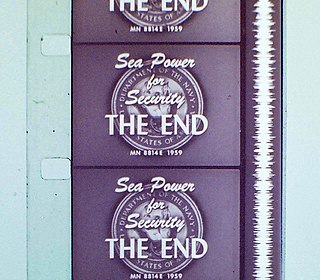
A soundtrack is recorded music accompanying and synchronised to the images of a motion picture, drama, book, television program, radio program, or video game; a commercially released soundtrack album of music as featured in the soundtrack of a film, video, or television presentation; or the physical area of a film that contains the synchronised recorded sound.

A film score is original music written specifically to accompany a film. The score comprises a number of orchestral, instrumental, or choral pieces called cues, which are timed to begin and end at specific points during the film in order to enhance the dramatic narrative and the emotional impact of the scene in question. Scores are written by one or more composers under the guidance of or in collaboration with the film's director or producer and are then most often performed by an ensemble of musicians – usually including an orchestra or band, instrumental soloists, and choir or vocalists – known as playback singers – and recorded by a sound engineer. The term is less frequently applied to music written for other media such as live theatre, television and radio programs, and video game, and said music is typically referred to as either the soundtrack or incidental music.

Man with a Movie Camera is an experimental 1929 Ukrainian Soviet silent documentary film, directed by Dziga Vertov, filmed by his brother Mikhail Kaufman, and edited by Vertov's wife Yelizaveta Svilova. Kaufman also appears as the eponymous Man of the film.

David Arnold is a British film composer whose credits include scoring five James Bond films, as well as Stargate (1994), Independence Day (1996), Godzilla (1998) and the television series Little Britain and Sherlock. For Independence Day he received a Grammy Award for Best Instrumental Composition Written for a Motion Picture or for Television and for Sherlock he, and co-composer Michael Price, won a Creative Arts Emmy for the score of "His Last Vow", the final episode in the third series. Arnold scored the BBC / Amazon Prime series Good Omens (2019) adapted by Neil Gaiman from his book Good Omens, written with Terry Pratchett. Arnold is a fellow of the British Academy of Songwriters, Composers and Authors.

Carl Davis, is an American-born conductor and composer who has lived in the United Kingdom since 1961.

65daysofstatic are a post-rock band from Sheffield, England. Formed in 2001, the band is composed of instrumentalists Paul Wolinski, Joe Shrewsbury, Rob Jones and Simon Wright.

Patrick Doyle is a Scottish film composer with Irish heritage. A longtime collaborator of actor-director Kenneth Branagh, Doyle is known for his work composing for films such as Henry V, Sense and Sensibility, Hamlet, Carlito's Way, and Gosford Park, as well as Harry Potter and the Goblet of Fire, Rise of the Planet of the Apes, Thor, Brave, Cinderella, and Murder on the Orient Express. Doyle has been nominated for two Academy Awards and two Golden Globe Awards, and is the recipient of the ASCAP Henry Mancini Award for "outstanding achievements and contributions to the world of film and television music".
Voices of Light is a 1994 musical composition by Richard Einhorn. It was inspired by the silent film The Passion of Joan of Arc (1928), directed by Carl Theodor Dreyer; live performances of the composition have accompanied screenings of the film. The libretto is based on excerpts from a variety of ancient writings, most of it from medieval female mystics. The text incorporates accusations from Joan of Arc's actual contemporary accusers. The language of this work is a mix of Latin and Middle French.
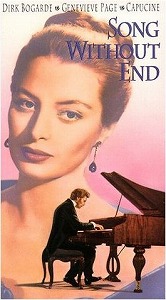
Song Without End, subtitled The Story of Franz Liszt, is a 1960 biographical film romance made by Columbia Pictures. It was directed by Charles Vidor, who died during the shooting of the film and was replaced by George Cukor. It was produced by William Goetz from a screenplay by Oscar Millard, revised (uncredited) by Walter Bernstein and based on screenwriter Oscar Saul's original 1952 script (uncredited). The music score was by Morris Stoloff and Harry Sukman with music by Franz Liszt, and the cinematography by James Wong Howe and Charles Lang (uncredited). The film also features music of those contemporaries of Liszt whom he unselfishly championed by featuring them in his numerous performances.
The Hollywood Symphony Orchestra (HSO) is a large scale American symphony orchestra based in Los Angeles, California. Its founder was John Scott and its current Principal Conductor and consulting producer is John Beal. The HSO is dedicated to performing classic, contemporary and world premiere media scores, and comprises recording musicians from the Hollywood movie studios and the Los Angeles concert scene.

Timothy Brock is an American-born conductor and composer specializing in concert works of the early 20th-century, orchestral performance practices of the 1920s and 1930s, and live performances to accompany silent film.
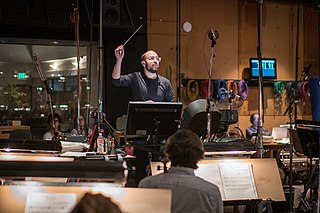
Joseph Trapanese is an American composer, arranger, and producer. He works in the production of music for films, television, records, theater, concerts, and interactive media.
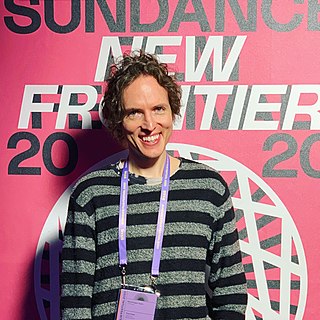
Tim Fain is an American violinist, best known for his performances in the movie Black Swan and his work with American composer Philip Glass.
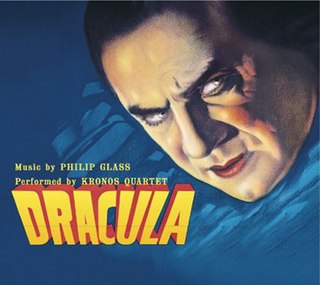
Dracula is a soundtrack performed by the Kronos Quartet, with music composed by Philip Glass, for the 1931 film Dracula.
Final Fantasy is a media franchise created by Hironobu Sakaguchi and owned by Square Enix that includes video games, motion pictures, and other merchandise. The original Final Fantasy video game, published in 1987, is a role-playing video game developed by Square, spawning a video game series that became the central focus of the franchise. The primary composer of music for the main series was Nobuo Uematsu, who single-handedly composed the soundtracks for the first nine games, as well as directing the production of many of the soundtrack albums. Music for the spin-off series and main series games beginning with Final Fantasy X was created by a variety of composers including Masashi Hamauzu, Naoshi Mizuta, Hitoshi Sakimoto, and Kumi Tanioka, as well as many others.
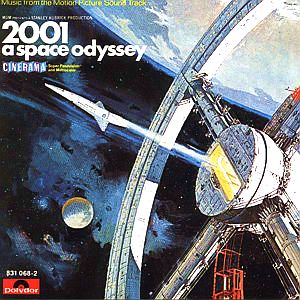
2001: A Space Odyssey is a soundtrack album to the film of the same name, released in 1968. The soundtrack is known for its use of many classical and orchestral pieces, and credited for giving many classical pieces resurgences in popularity, such as Johann Strauss II's 1866 Blue Danube Waltz, Richard Strauss' symphonic poem Also sprach Zarathustra, and György Ligeti's Atmosphères. The soundtrack has been re-issued multiple times, including a digitally remastered version in 1996.
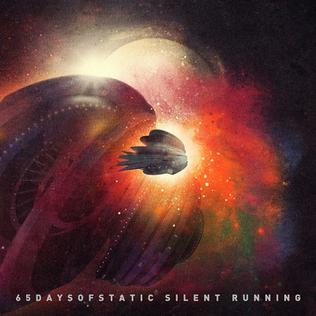
Silent Running is an album by 65daysofstatic. It is an alternate soundtrack to the 1972 science fiction film, Silent Running. It was originally commissioned by Glasgow Film Festival at the beginning of 2011 as a live re-score performed by the band. In July 2011, the band announced their intention to fund a studio recording of the Silent Running soundtrack by raising $7500 through the crowd-funding website Indiegogo. By the end of the funding period they had raised over $27,000. Silent Running was released in mid-November 2011 as a numbered, limited edition vinyl LP to those Indiegogo funders who had paid for this option, and as a digital download from the band's website.
RPM Orchestra is a proto-Industrial Americana music quintet based in Phoenix, Arizona.
The Hollywood Chamber Orchestra (HCO) is an American orchestra based in Los Angeles, California, and founded in 2015 by musicians Noah Gladstone and Mark Robertson, who are also co-music directors.

Stuart Hancock is a British composer of film, TV and concert music. Hancock is known for having composed the original soundtracks to series 2 of the BBC fantasy series Atlantis, the animated TV adaptation of We're Going On A Bear Hunt and the Netflix comedy horror Crazyhead. He won the BASCA British Composer Award in 2015 for his community song-cycle, Snapshot Songs.














